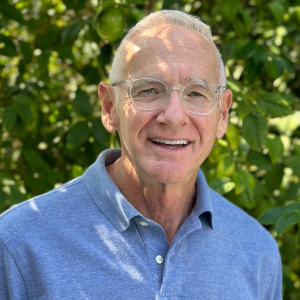
When Faridah walked into the pharmacy at our orientation camp, she needed a wonder drug: one that would immediately arrest her settling diarrhoea. She did not ask for a doctor, nor did she try to consult the pharmacists about what to take. “Give me that antibiotic”, she boldly demanded, pointing to the metronidazole container on the table, with her face marked with a frightening sense of urgency. “What for?” we asked. “My stomach is disturbing me; I have diarrhoea”. Our deepest concern was not that she requested the antibiotic outright, but the boldness and confidence with which she did. That confidence, no doubt, stemmed from how commonly metronidazole has been abused for diarrhoea. Even more troubling, this kind of request is becoming increasingly common among medical professionals and for a country like Nigeria, already grappling with antimicrobial resistance (AMR), this is an issue that must be tackled from the grassroots.
Metronidazole is an antibiotic not recommended for everyday use in treating diarrhoea because overuse can promote antimicrobial resistance. Frequent, unnecessary use also disrupts normal gut flora, reducing its effectiveness and increasing the risk of treatment failure when truly needed.
The AMR crisis in Nigeria is rapidly evolving. In 2019 alone, it was responsible for over 263,000 deaths (Biose, 2024). As a result, reports of antibiotic failure from laboratory tests across the country have become increasingly common. In many hospitals, AMR is now a familiar challenge. Within households, it is not uncommon to hear of cases where antibiotics have failed to work. For most people, when metronidazole fails to relieve symptoms, the next step is often to switch to a different class of antibiotics, perhaps Amoxicillin-Clavulanic acid or whatever they believe to be “stronger”. This behaviour only worsens the crisis of antibiotic misuse, especially in cases of diarrhoea that may be acute and self-limiting.
Metronidazole abuse has become so common that many people carry it in their bags, ready to take it at the slightest sign of stomach discomfort. In addition, people who suspect that the food they have eaten might upset their stomach often take a few doses of it. Due to its longstanding efficacy in managing a broad spectrum of intestinal conditions, many of which present with diarrhoea, metronidazole is often mistakenly perceived by the public as a medicine primarily intended for the treatment of diarrhoea. Uchendu et al., 2009 reported the widespread abuse of metronidazole among children, with half of the respondents admitting to giving antibiotics, primarily metronidazole (47.5%), to their children before seeking hospital care.
However, the abuse of metronidazole is not limited to Nigeria; it represents a global crisis. In Dodoma, Tanzania, Samson et al., 2023 found that 62% of female respondents reported using the drug as emergency contraceptive. In India, Chowdhury et al., 2012 reported the case of a man who developed dependency and continued abusing metronidazole, mebendazole, ornidazole, and albendazole for over 12 years, consuming up to 20 tablets daily. In addition, Yusuf et al., 2019 revealed that 57% laypeople took Metronidazole based on the number of stools they passed, rather than following standard dosing guidelines, raising serious concerns about both underdosing and overdosing.
Diarrhoea remains a significant public health challenge that can provoke fear and a heightened sense of urgency, especially among nursing mothers and adults who risk experiencing the distress of losing bowel control in public. This fear often acts as a driving force behind the misuse of antibiotics for diarrhoea, as people seek quick fixes without considering the underlying cause of the illness. According to the GBD 2021 Diarrhoeal Diseases Collaborators, diarrhoeal diseases accounted for an estimated 1.17 million deaths globally. Each year, the global cases of diarrhoea hits nearly 1.7 billion, with death tolls of about 443, 832 deaths among children under 5 and additional 50, 851 deaths among children aged 5 to 9 years (World Health Organisation, 2024).
Although statistics on the global burden of diarrhoea are frightening, it is worthy to note that diarrhoea is largely preventable; therefore, urgent efforts must be directed towards addressing the issue at its root through effective infection prevention and control and this can be achieved by promoting access to safe drinking water and nutrient-enriched foods.
In addition, improved sanitation, such as maintaining clean environments and implementing interventions to reduce or eliminate open defecation, can significantly reduce the incidence of diarrhoea. Hygiene practices, including hand washing with soap before preparing food, after eating, and after using the toilet, are equally essential. Food hygiene, such as proper cooking and storage of meals, and vaccination can also help slow the spread of diarrhoeal diseases.
Mass education is crucial to enhance public understanding of the symptoms, causes, and evidence-based treatment options for diarrhoea.
As health professionals, there is a growing need to lead campaigns that promote the responsible use of antibiotics in our communities and advocate for antimicrobial stewardship within healthcare facilities. These efforts are essential to correct public misconceptions about antibiotics and to strengthen trust in the healthcare system.
When Faridah received the Oral Rehydration Solution (ORS) and zinc tablets from us, she was initially sceptical; her mind was still fixated on the metronidazole she had requested. However, with proper counselling, she agreed to take the recommended treatment. By the next day, her diarrhoea had already begun to subside.
“If a safe alternative is equally effective, do not use antibiotics.” Let us preserve our antibiotics, so we do not run out of them when we need them the most. Above everything, always listen to the advice of a qualified medical professional.

Kenneth Chukwuebuka Egwu (B. Pharm, NIG)
Kenneth Egwu is a passionate global health pharmacist working to tackle the growing threat of antimicrobial resistance (AMR), especially in under-resourced communities across Africa. He co-founded the AMR Intervarsity Training Program. Kenneth also facilitates training at the Stop Superbugs Squad. In 2021, he was one of 25 students selected for the Ducit Blue Foundation One Health Pan-African AMR Internship/Mentorship Program. In 2022, he was also selected for the Future Leaders Against AMR program. His team reached the finals of the Innovate4Health competition with a project to reduce antibiotic misuse among farmers in Northern Nigeria.
In 2023, Kenneth received a grant from the PAR Foundation to educate and launch AMR Clubs across Nigerian universities. In 2024, he also won another grant from BSAC and is continuing to expand these clubs while raising AMR awareness through public engagement and online conversations. He has currently established AMR clubs in 35 tertiary institutions in Nigeria.
Disclaimer: The information provided on this website is intended for educational purposes only. It is not intended to be a substitute for professional medical advice, diagnosis, or treatment. Always seek the advice of your physician or other qualified health provider with any questions you may have regarding a medical condition. Never disregard professional medical advice or delay in seeking it because of something you have read on this website. Reliance on any information provided on this website is solely at your own risk. The website owners and authors are not responsible for any errors or omissions in the content or for any actions taken based on the information provided. It is recommended that you consult a qualified healthcare professional for individualised medical and health-related guidance.












